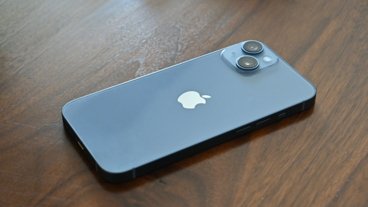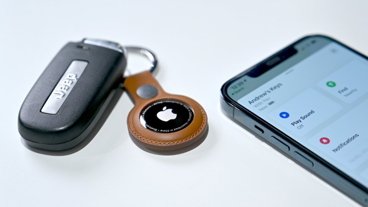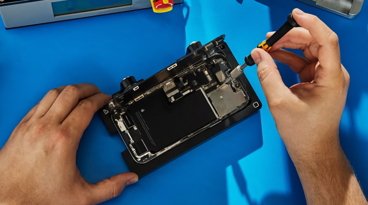US Cellular to begin selling Apple products this year
U.S. Cellular, the sixth-largest wireless provider in America, announced on Friday that it will begin carrying Apple products later this year.
The announcement came in U.S. Cellular's quarterly earnings report. No specific products were mentioned, but presumably the carrier will offer Apple's iPhone as well as cellular-capable variants of the iPad, as other carriers do.
"We have a number of strategies in progress to increase loyalty and attract more customers, including our announcement today that we will begin offering Apple products later this year," U.S. Cellular Chief Executive Mary Dillon said in a statement. "By further strengthening our device portfolio, we'll give consumers another great reason to switch to U.S. Cellular, and enable our existing customers to choose from an even wider variety of iconic smartphones, and enjoy the outstanding U.S. Cellular customer experiences they deserve."
A big reversal
The move is a dramatic reversal for the carrier. At the end of 2011, Dillon told analysts the company had opted against carrying Apple's iPhone because of its upfront expense, describing the investment as "unacceptable from a risk and profitability standpoint."
A month later, Ted Carlson, the chief executive of U.S. Cellular's parent company TDS, revealed at the UBS GLobal Media and Communications Conference that the carrier was focused on building out its 4G LTE service first, before trying to offer the iPhone.
"We're never going to say never about the iPhone," he said. "The iPhone for us would need to be at the cutting edge of where we're going, and then there might be an opportunity to consider it."
U.S. Cellular's reversal of its no-iPhone policy in a new effort to attract new and loyal customers mirrors a similar about-face by Verizon, which once publicly announced that it had initially rejected Apple as a launch partner, similarly citing the iPhone's terms as unacceptable.
In late 2009, Verizon bet heavily on Android models as its BlackBerry smartphones began to lose their luster at the failed launch of BlackBerry's iPhone-like Storm at the end of 2008. Verizon mocked the iPhone in 2009 in an "iDon't ad" campaign and continued to assail iPhone 4 through the middle of 2010 in ads that promoted Motorola Droid X.
However, Android as a platform couldn't match the iPhone in attracting valuable customers to Verizon's network. As a result, Verizon embraced the iPad at the end of 2010 and added a CDMA version of iPhone 4 at the beginning of 2011. As a result, the company announced its largest launch ever.
Third and fourth place US carriers Sprint and T-Mobile have similarly noted to investors that their inability to carry the iPhone were their top reasons for losing customers to rival carriers. After Sprint joined Apple as a carrier, it too announced its most successful smartphone launch ever.
Entering the top five
U.S. Cellular served about 5.8 million customers in 126 markets in 26 states as of 2012, placing it behind Verizon, AT&T, Sprint, T-Mobile, and MetroPCS in terms of size. The latter two made their plans to merge official this week.
As U.S. Cellular gears up to presumably offer Apple's iPhone later this year, the company is also rolling out its own high-speed 4G LTE network. Apple's current flagship handset, the iPhone 5, offers 4G LTE compatibility.
Friday's announcement is similar to the one T-Mobile made in December, when the nation's fourth-largest carrier revealed it would begin selling "Apple products," without naming the iPhone. The iPhone 5 launched on T-Mobile last month, but there's been no mention of the carrier offering Apple's iPad.
 AppleInsider Staff
AppleInsider Staff











 Andrew Orr
Andrew Orr
 Sponsored Content
Sponsored Content
 Malcolm Owen
Malcolm Owen

 William Gallagher
William Gallagher

 Mike Wuerthele
Mike Wuerthele
 Christine McKee
Christine McKee







